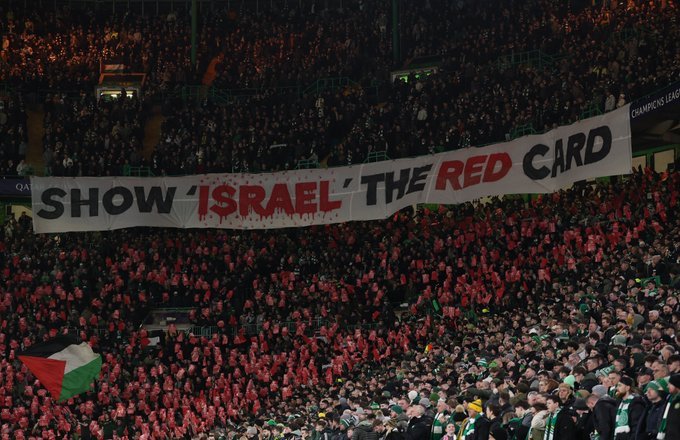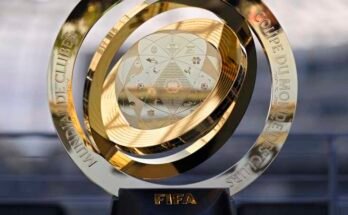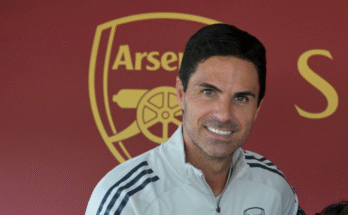In a strong message of protest, the fans of Celtic Football Club have made their voice heard on the international stage once again, this time protesting against Israel’s actions in Gaza. The protest, which took place at a recent match, called for UEFA and FIFA to ban Israel from international football because of its military actions in the Palestinian territory. The protest is also part of a larger global trend of fans at sporting events using premier events to make political and humanitarian expressions, particularly in solidarity with Palestine
Celtic supporters are no different when it comes to activism and solidarity with oppressed peoples. The Green Brigade, one of the Celtic supporters’ ultra-groups, has been taking a stand on the issue of Palestine for years. From flying Palestinian flags at games to organizing fundraising campaigns for humanitarian aid, these supporters have taken it upon themselves to utilize football as a platform to express their solidarity with the Palestinian people
At their latest game, thousands of Celtic fans rolled out Palestinian flags and banners calling for justice and accountability. Slogans condemning Israel’s military assaults on Gaza echoed throughout the stadium, mesmerizing media worldwide. Their message was clear: UEFA and FIFA must take action by suspending Israel from international football
The demand that Israel be kicked out of world football is not novel. FIFA has previously taken the same actions against other countries that have been involved in human rights abuses or political conflicts. For instance, South Africa was barred from FIFA competitions during the apartheid era due to international outcry over its racial segregation policies
Celtic fans argue that Israel’s actions in Gaza marked by air strikes, civilian casualties, and widespread destruction constitute flagrant human rights violations, meriting the same punitive response from the football authorities. They believe that allowing Israel to compete in international football legitimizes its government’s actions and conflicts with the principles of justice, equality, and human rights that FIFA and UEFA claim to uphold.
Football and politics have been intertwined for decades, and the beautiful game has been an effective tool for activism and social justice movements. Whether players have knelt in protest at racism or entire teams have boycotted tournaments in protest at human rights violations, the sport has consistently been contested over ideological wars.
The Celtic protest is part of a wider trend of athletes and sports fans using their platform to highlight injustices around the world. There have been comparable demonstrations in other soccer leagues in recent times, with fans unfurling banners, boycotting games, and urging governing bodies to issue a political statement. The uproar surrounding Russia’s exclusion from global soccer following its invasion of Ukraine only serves to add fire to the debate that Israel should similarly be reprimanded for its actions in Gaza.
UEFA and FIFA have generally had a guarded stance in handling political matters, with the usual response being that football and politics do not mix. Yet, the fact remains that political considerations have entered into decisions at these bodies more than once in the past.
While neither UEFA nor FIFA has responded directly to the Celtic fans’ call, the protest has sparked intense discussion. Pro-Palestinian demonstrators have welcomed the action as a courageous and timely initiative to further the cause of justice. However, critics, including Israeli officials and fans, have denounced the protest, arguing that football must be free of politics and that such protests could further inflame tensions rather than contribute to solutions
The Celtic protest raises serious questions about the part sport must play in geopolitical conflict. Should football governing bodies take a firm line against governments involved in human rights violations, or should they remain neutral? The precedent of previous suspensions, such as South Africa and Russia, suggests that FIFA and UEFA both have the power and the responsibility to act in cases of flagrant human rights concerns
Moreover, the protest underscores the growing influence of fan activism in shaping the discourse of global issues. Football clubs, which have conventionally been regarded as sources of entertainment, are also political forums where fans demand accountability from their clubs and governments
The protest by Celtic fans will not be the last such protest. As long as the war in Gaza persists and global pressure on Israel over its actions increases, such protests can be expected to take place in other football clubs and leagues across the world. The campaign to ban Israel from international football will gain strength, particularly if it is endorsed by top players, clubs, and human rights organizations.
While FIFA and UEFA may seek not to take a definitive stance, the pressure that is created by the activists, fans, and even politicians could compel them to reconsider. If history is any indicator, football can be a catalyst for political change, and the voices of Celtic supporters could become part of a broader call for accountability and justice on the global stage.
Celtic fans protest against Israel’s Gaza actions is a powerful reminder of the connection between sport and politics. In calling for UEFA and FIFA to ban Israel from international football, these fans have reopened a vital debate about human rights, accountability, and the role of sport in global activism. Whether football authorities listen to them or not, the protest has already achieved its primary goal: putting the plight of the Palestinian people at the center of attention and making the world debate the issue. Football being a platform for social and political issues, the influence of committed and principled supporters like Celtic’s cannot be emphasized enough.
Celtic Fans Protest Israel’s Actions in Gaza, Calling for UEFA and FIFA to Suspend Israel from International Football.



